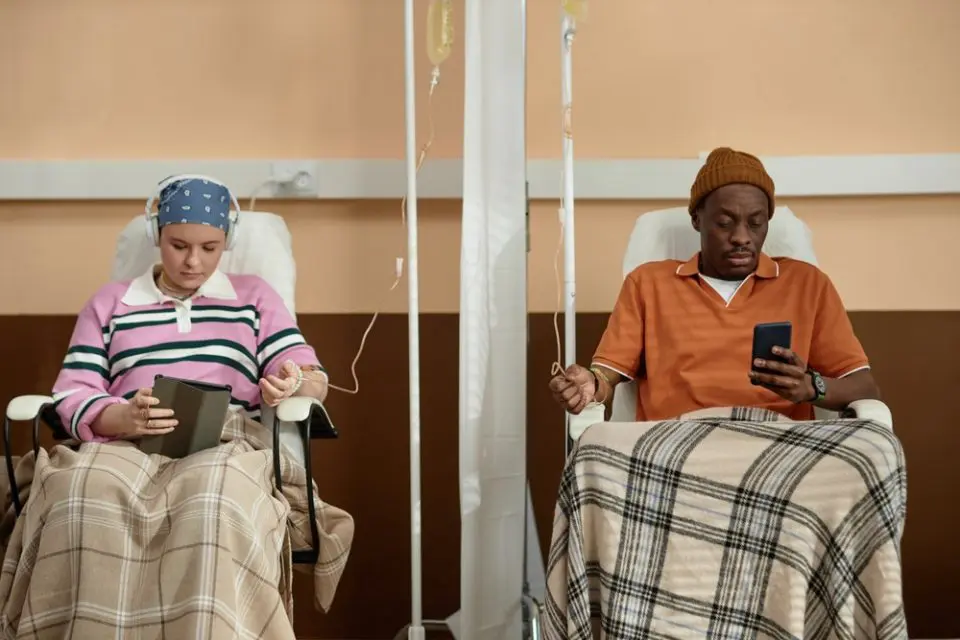Hope emerges through modern treatments and personal growth

The diagnosis journey
A cancer diagnosis hits like a thunderbolt, changing lives instantly and profoundly. Victor Gonzalez, senior director of patient programs and support services at The Lymphoma Research Foundation, understands this impact both professionally and personally. Through his mother’s battle with aggressive stomach cancer and his own experience with Barrett’s esophagus, Gonzalez brings unique insight to those facing chronic lymphocytic leukemia (CLL). His dual perspective as both advocate and patient family member enriches his ability to guide others through their cancer journey. Recent studies indicate that emotional support during initial diagnosis significantly improves patient outcomes and treatment adherence.
Finding strength and support
The initial paralysis of a CLL diagnosis gradually gives way to a need for information and connection. Gonzalez emphasizes that while the news may feel overwhelming, focusing on mental health and building support networks proves crucial. His twelve years of experience in patient resources reveal how maintaining optimism can positively influence treatment outcomes. Setting personal milestones, whether attending a child’s graduation or planning family gatherings, helps patients remember that life continues beyond their diagnosis. Support groups and online communities provide valuable connections with others sharing similar experiences, offering both practical advice and emotional comfort.
Personal transformation
CLL often catalyzes profound personal growth, with many patients discovering new aspects of themselves through their journey. Some find purpose in advocacy work or motivational speaking, while others redirect their energy toward family connections or participation in clinical trials. This transformation period allows individuals to reevaluate their priorities and often leads to meaningful life changes that extend beyond their medical journey. Research shows that patients who engage in purposeful activities during treatment often report better quality of life and improved emotional well-being.
Modern treatment landscapes
Recent years have witnessed remarkable advances in CLL treatment options. Beyond traditional chemotherapy, targeted therapies like BCL-2 inhibitors offer new hope. VENCLEXTA® (venetoclax), the only FDA-approved BCL-2 inhibitor for CLL, works by restoring the body’s natural process of eliminating damaged cells. When combined with GAZYVA® (obinutuzumab), this chemo-free regimen typically completes within a year, offering patients a defined treatment period. Clinical studies demonstrate significantly improved outcomes with these newer treatment approaches, with many patients achieving longer remission periods.
Safety considerations
While newer treatments bring promise, understanding potential risks remains crucial. Tumor lysis syndrome (TLS) represents a serious concern, potentially leading to kidney complications. Regular monitoring through blood tests and proper hydration help manage these risks. Healthcare providers need complete information about medications and supplements to prevent dangerous interactions and ensure optimal treatment outcomes. Patient education programs have shown that informed patients experience fewer complications and better manage potential side effects.
Building resilience
The CLL journey, while challenging, often reveals unexpected strengths. Patients frequently discover inner resources they never knew existed, developing resilience through their experiences. Support groups and connections with others facing similar challenges provide valuable perspective and encouragement. Understanding that each person’s journey is unique helps patients navigate their path while maintaining hope for the future. Recent psychological studies highlight the importance of resilience-building in cancer treatment, showing improved outcomes for patients who develop strong coping mechanisms.
Treatment decisions
Making informed treatment choices empowers patients in their healthcare journey. Modern options like VENCLEXTA combined with GAZYVA offer defined treatment periods, allowing patients to plan their lives more effectively. Regular communication with healthcare providers ensures treatment plans align with individual needs and circumstances. This collaborative approach helps patients maintain control over their treatment journey while benefiting from medical expertise. Research indicates that patients who actively participate in treatment decisions report higher satisfaction with their care and better adherence to treatment protocols.
Lifestyle adaptations
Successfully managing CLL often involves making thoughtful lifestyle changes. Nutrition plays a crucial role, with research supporting the benefits of a balanced diet rich in antioxidants and immune-supporting nutrients. Regular exercise, as approved by healthcare providers, can help maintain strength and energy levels during treatment. Stress management techniques, including meditation and gentle yoga, have shown positive effects on both physical and emotional well-being during the cancer journey.
Looking forward
Hope emerges through various channels – advanced treatments, supportive communities, and personal growth opportunities. While CLL presents significant challenges, many patients find meaning and purpose through their journey. Understanding available resources and treatment options helps individuals face their diagnosis with greater confidence and optimism about the future. Ongoing research continues to expand treatment possibilities, offering new hope for CLL patients and their families.













